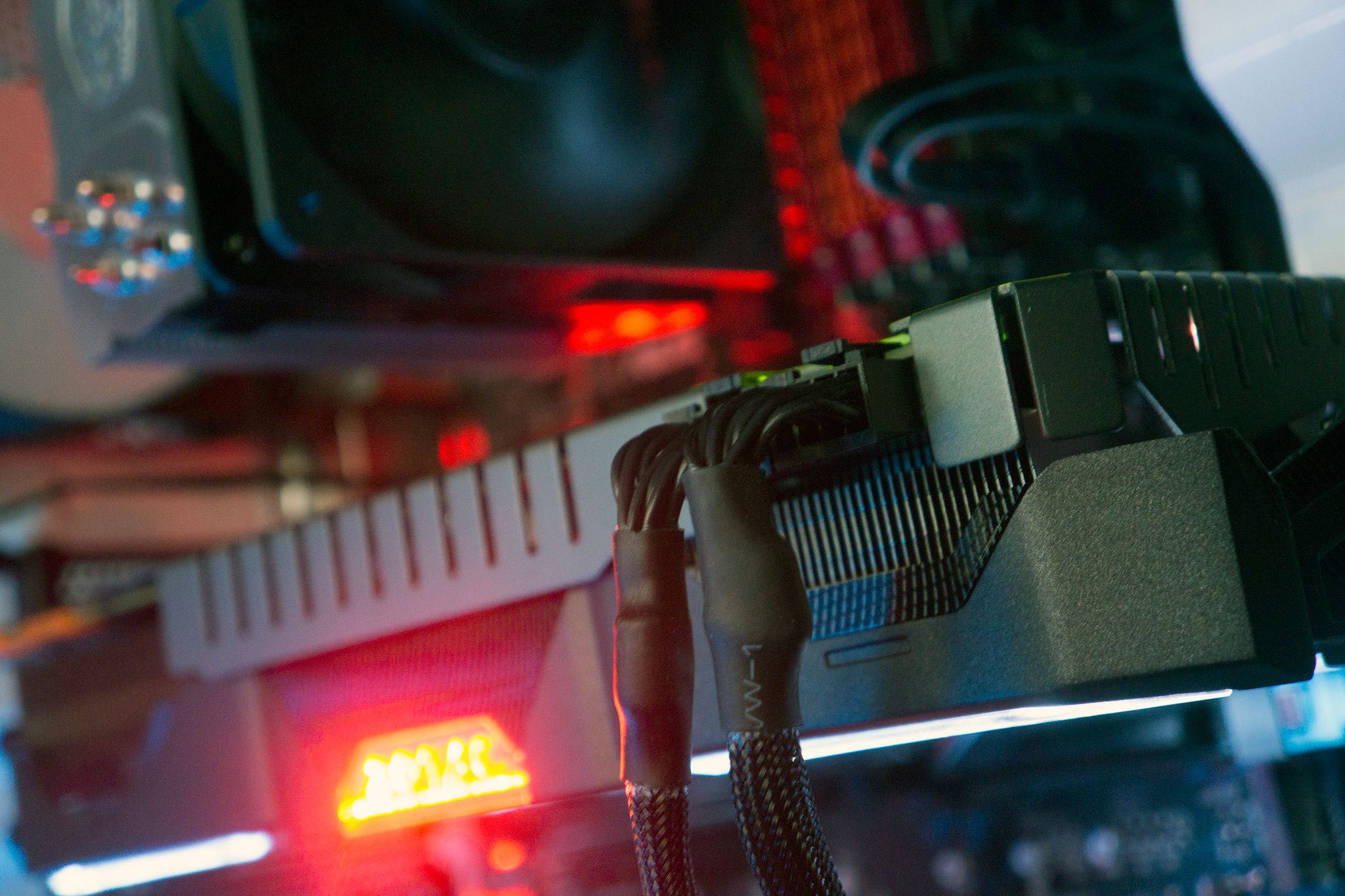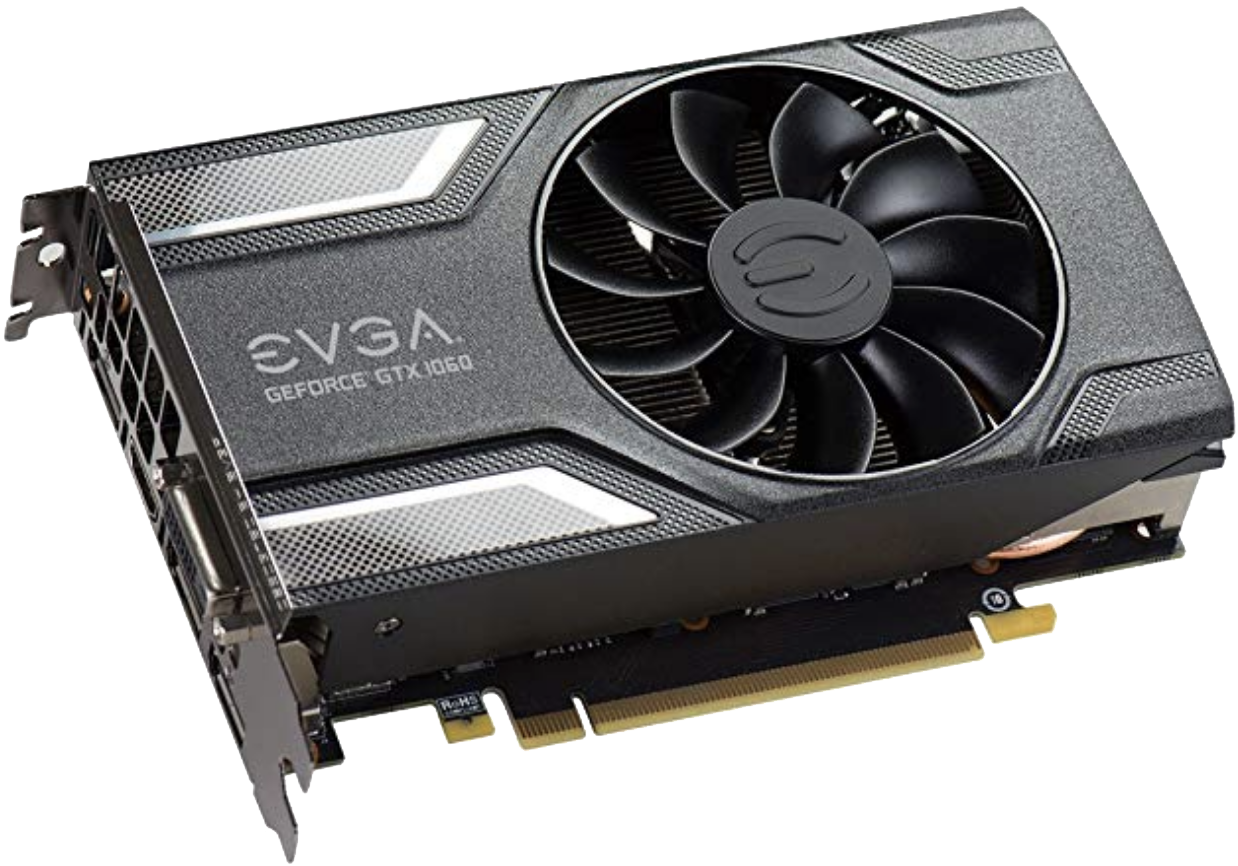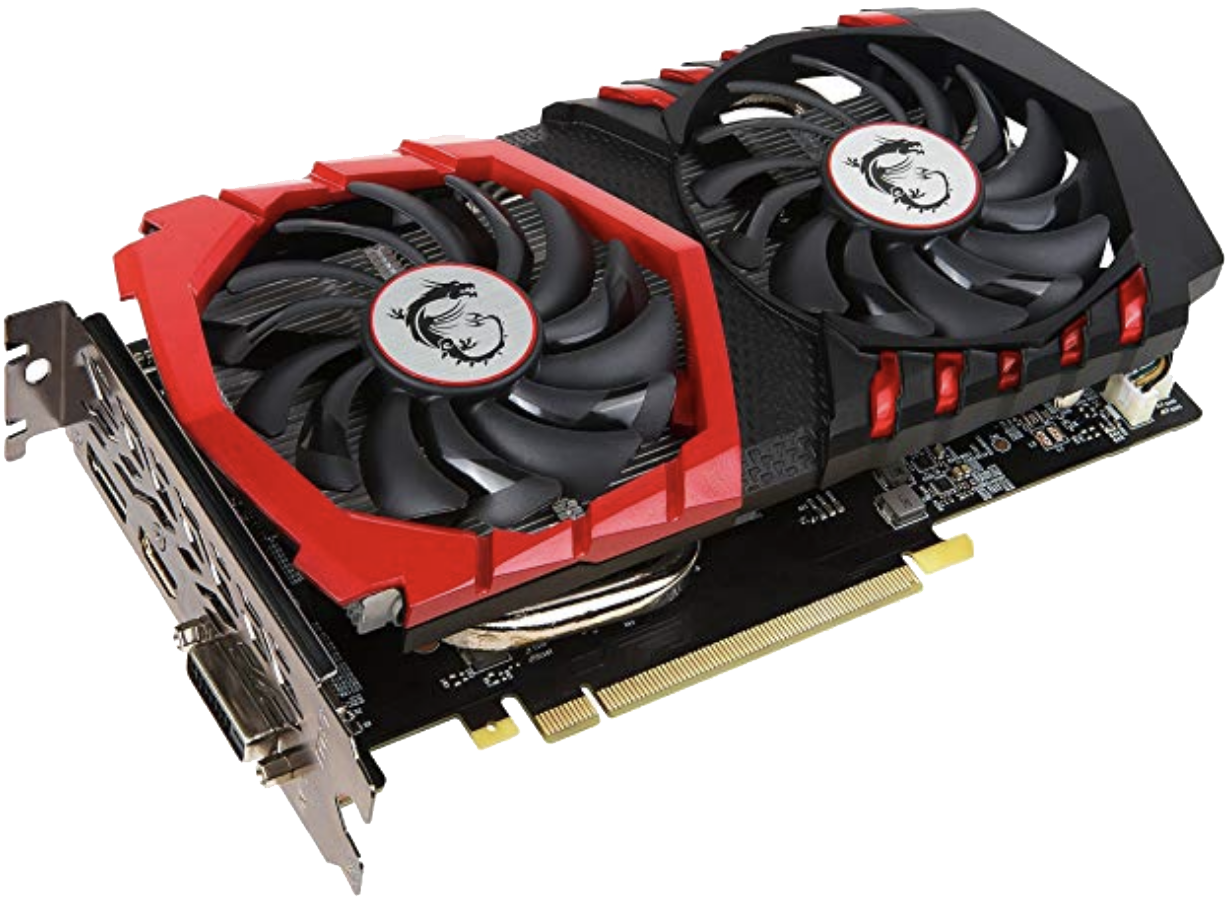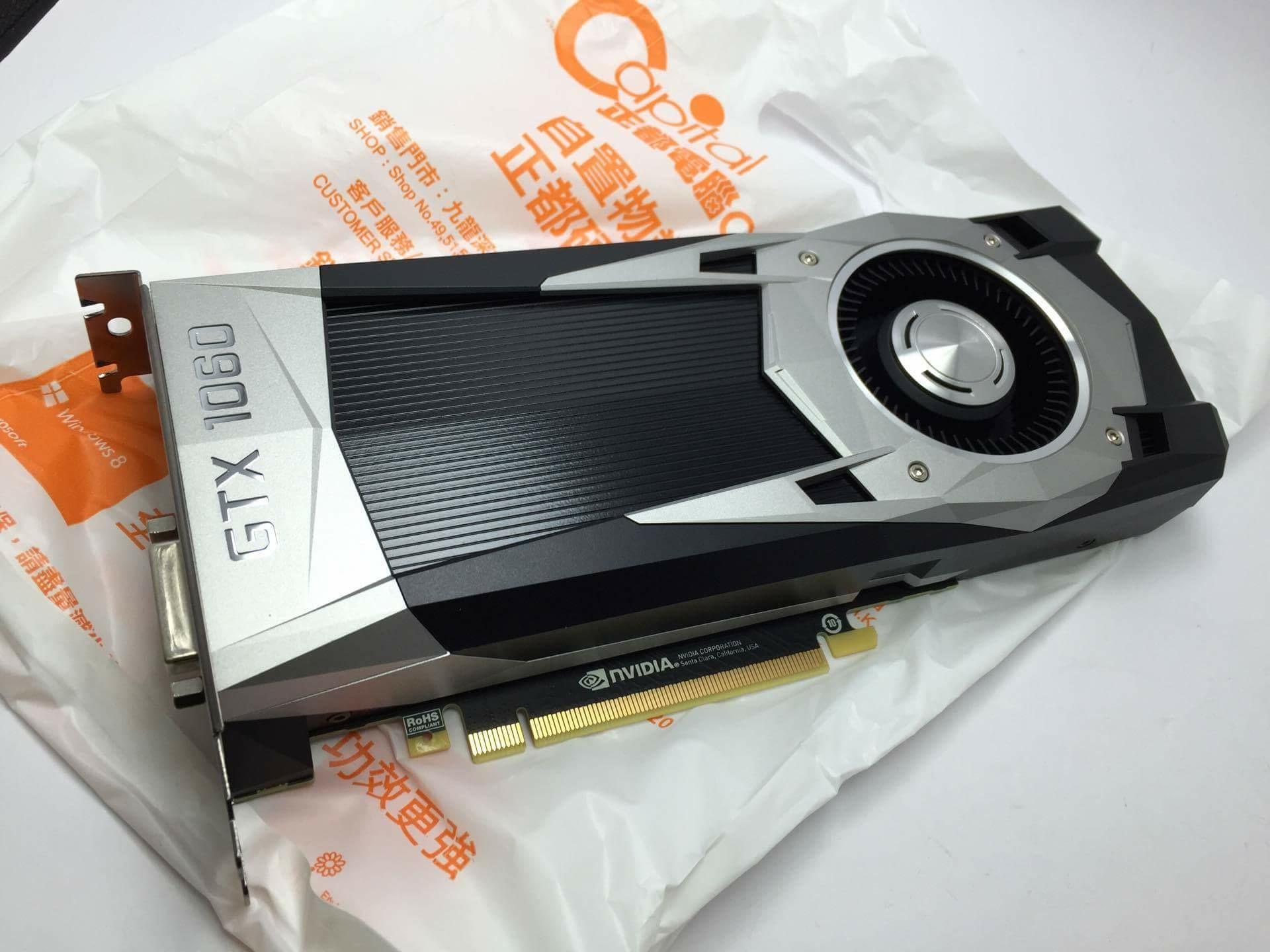NVIDIA GTX 1050 Ti vs. GTX 1060: Which should you buy?

All the latest news, reviews, and guides for Windows and Xbox diehards.
You are now subscribed
Your newsletter sign-up was successful

Excellent mid-range
EVGA's GeForce GTX 1060 SC (6GB) is a well-rated, reliable GPU that outperforms the GTX 1050 Ti while drawing more power. It costs significantly more, but if you plan on VR or just want higher framerates in modern titles, it should be the go-to choice. There's also a 3GB version of the GTX 1060, though at that point you can save some money by opting for the GTX 1050 Ti and still get similar performance.
Pros
- More powerful than GTX 1050 Ti
- 3GB and 6GB options available
- Better suited for mid-range gaming
Cons
- More expensive than GTX 1050 Ti
- Consumes more power

Cost-effective GPU
Those who don't plan on tackling intensive VR and who don't need optimal framerates in modern games can save a load of cash on MSI's GeForce GTX 1050 Ti. It sucks up less power, and while it won't outperform the 6GB GTX 1060, it's no doubt a better option than the 3GB GTX 1060 due to price to performance ratio.
Pros
- Cheaper than GTX 1060
- Consumes less power
- Better pick for low-end gaming than 3GB GTX 1060
Cons
- Not as powerful as GTX 1060 6GB
These two GPUs are near the low end of the spectrum, especially with NVIDIA's RTX cards readily available, but they're still a great option if you're looking to build a budget gaming PC.
NVIDIA GTX 1050 Ti vs. GTX 1060 tech specs
Before getting into the differences between the GTX 1060 and the GTX 1050 Ti, it's important to note that there are actually two common versions of the GTX 1060 — one with 3GB of VRAM and one with 6GB of VRAM — as well as another exclusive to China with 5GB of VRAM.
| Category | GTX 1050 Ti | GTX 1060 (3GB) | GTX 1060 (6GB) |
|---|---|---|---|
| VRAM | 4 GB GDDR5 | 3 GB GDDR5 | 6 GB GDDR5 |
| Memory speed | 7 Gbps | 8 Gbps | 8 Gbps |
| Memory bandwidth | 112 GB/s | 192 GB/s | 192 GB/s |
| Base clock | 1,290 MHz | 1,506 MHz | 1,506 MHz |
| Boost clock | 1,392 MHz | 1,708 MHz | 1,708 MHz |
| CUDA cores | 768 | 1,152 | 1,280 |
| Memory interface | 128-bit | 192-bit | 192-bit |
| TDP | 75 W | 120 W | 120 W |
NVIDIA GTX 1050 Ti vs. GTX 1060 benchmarks
As you can see from the table above, both the 3GB and 6GB versions of the GTX 1060 provide better bandwidth, higher clock speeds, and more CUDA cores than the GTX 1050 Ti. The real difference comes down to the price and what you want to use the GPU for. However, to get a better idea of the differences between these GPUs, it's good to take a look at some real-world benchmarks.
On UserBenchmark, the GTX 1060 (6GB) averaged about 160 frames per second (FPS) playing Counter-Strike: Global Offensive (CS:GO) at 1080p with Max settings, and 61FPS playing Grand Theft Auto V (GTAV) at 1080p on Max settings. The GTX 1060 (3GB) averaged about 151FPS and 60FPS, respectively, under the same circumstances. Looking at a more intensive game, the 6GB GTX 1060 averaged about 70FPS in Battlefield 1 at 1080p with Max settings, while the 3GB GTX 1060 hit only about 55FPS.
The 1050 Ti averaged 120FPS in CS:GO and 43FPS in GTAV using the same settings. As for Battlefield 1, it managed just 46FPS. When compared to the benchmarks achieved by the 6GB GTX 1060, you can see how much more power you get when you spend the extra money. However, the benchmarks achieved by the 3GB GTX 1060 are so close to those of the 1050 Ti that you'll probably want to go with the latter, especially in a budget-build scenario.
Which GPU is right for you?
The GTX 1060 (6GB) offers significantly more graphics power, and though it's about $115 more than our top pick for a GTX 1050 Ti, it should be your first choice when it comes to gaming and VR.
While the price difference between the 3GB and 6GB GTX 1060s was once only about $40, the stellar ASUS GTX 1060 (3GB) costs about $220, bringing the price difference up to about $80. This makes the decision a bit more difficult, and product availability or temporary sales will no doubt play a big part in your final choice between the two GTX 1060s. There are, of course, some PC builds where the 3GB version will play a role, but for most people, the decision will come down to the GTX 1060 (6GB) and the GTX 1050 Ti.
All the latest news, reviews, and guides for Windows and Xbox diehards.
And if you want a budget card, the GTX 1050 Ti offers decent performance and an excellent price at $185, making it the best option for a cost-conscious build. One more thing to keep in mind is that some GTX 1050 Ti models (not the MSI version we recommend here) don't require an extra power cable running to it from the power supply unit (PSU). It can operate with power coming straight from the motherboard. This also means the PSU in your PC doesn't need to be quite as beefy, no doubt saving you a bit of extra money on that budget rig.
If you're interested in NVIDIA's RTX cards or just want to see what else is out there, be sure to check out our roundup of the best graphics card options. Those just starting down the path of building a PC can likewise check out our complete guide to building a custom PC.
If you can afford it, go with the GTX 1060 (6GB)
If your budget allows, the 6GB GTX 1060 is going to offer considerably better performance over the GTX 1050 Ti. You'll get much better framerates, and you'll be able to play modern games with higher settings.

Costs more, but offers superior performance
EVGA's GeForce GTX 1060 SC (6GB) is a well-rated, reliable GPU that outperforms the GTX 1050 Ti while drawing more power. It costs significantly more, but if you plan on VR or just want higher framerates in modern titles, it should be the go-to choice. There's also a 3GB version of the GTX 1060, though at that point you can save some money by opting for the GTX 1050 Ti.
Stick with the GTX 1050 Ti for a budget build
Those looking to build a budget gaming PC can save a considerable amount of money with the GTX 1050 Ti and still play most modern games, if not with maxed settings.

Affordable low-end performance
Those who don't plan on tackling intensive VR and who don't need optimal framerates in modern games can save a load of cash on MSI's GeForce GTX 1050 Ti. It sucks up less power, and while it won't outperform the 6 GB GTX 1060, it's no doubt a better option than the 3 GB GTX 1060 due to price to performance ratio.

Cale Hunt brings to Windows Central more than nine years of experience writing about laptops, PCs, accessories, games, and beyond. If it runs Windows or in some way complements the hardware, there’s a good chance he knows about it, has written about it, or is already busy testing it.

